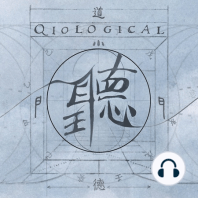40 min listen

050 Upper, Middle and Lower Class Herbs: An Investigation of Resonance • Andrew Nugent-Head
050 Upper, Middle and Lower Class Herbs: An Investigation of Resonance • Andrew Nugent-Head
ratings:
Length:
69 minutes
Released:
Sep 18, 2018
Format:
Podcast episode
Description
Even when speaking in our mother tongue we often misunderstand each other. Due to our biases, perspectives, and background it is easy to overlay our story on just about any situation. Add in that we are dealing with translation between language and culture; it gets even trickier.In today’s conversation we explore the use of “upper, middle and lower” class herbs. This does not mean that upper is better; it means each medicinal has an affinity for more formed or less formed aspects of a person. “Upper” does not mean better, nor “lower” mean worse, these are simply demarcations on where a particular herb will be effective. It’s our job as practitioners to choose the right tool for the right job.Listen in to this conversation that cautions about conflating “upper” with “better.” And goes into how Chinese medicine can be used for acute and emergent conditions that some doctors used to treat quite well before the advent of emergency rooms. Head on over to the show notes page for more information about this episode and for links to the resources discussed in the interview.
Released:
Sep 18, 2018
Format:
Podcast episode
Titles in the series (100)
006 Value, Integrity, Responsibility- the path to prosperity • Lorne Brown by Qiological Podcast